Coming to you live from Bluestalking Central. I'm afflicted with galloping consumption, about to cough up a lung any moment. But I'm a brave, brave reader. I've finished my list and here it is. Without further ado, Bluestalking's Official Best Reads of 2011 Post!:
Before I started Bluestalking I kept record of all the books I read in a black, hardcover journal I bought for around $ 6.99 at Barnes and Noble. It was a nice, thick book with full-size 8.5 x 11 pages. A satisfyingly hefty tome. For each book I read I noted title, author, page numbers and a few lines of opinion and plot synopsis. Hardly anything, really. Just enough to say I liked a book or didn't.
Like so many bibliophiles, I earned a B.A. in English literature, or, "No, I really have no idea what I want to do with my life." Indeed, my notion of a world welcoming me and the wealth of knowledge I'd gathered was puzzlingly not forthcoming. I have bits of knowledge about lots of things! What's not to desire about that? I received very good grades, graduated with honors and could hold my liquor. I usually win at games of Trivial Pursuit!
The world's response? Crickets chirping.
All that earned me was a string of secretarial jobs. Then I had a baby. Fortunately for us, my husband earned enough money I had the luxury of staying home with her. The same girl who's turning 18 this Saturday, with two brothers ages 16 and 14 close behind. One must keep busy. May as well procreate regularly.
After a couple years at home, feeling my brain dehydrate in my skull, I knew I had to start reading again or go mad. Things moved more slowly then. I hadn't yet begun reviewing or getting freebies in the mail. I didn't have the luxury of stretching out an arm, in any direction, to grab the next book I'd be reading. I even had trouble coming up with titles! What a foreign concept. Now I drive myself mad choosing between hundreds – no, thousands – of books lying about in every room of my house. So many books I despair of ever reading half of them. Yet, somehow, having them here is soothing.
Now it's 2011, about 16 years after I promised myself I'd start reading again, 27 years after I declared my undergraduate major. Just as then, literature – and a liberal arts education – is something the greater part of the world doesn't value all that much. If I were to shop around my B.A. in today's marketplace it would make it near the top of the stack in only an infintessimal number of cases. Throw in my Master's, my various experience and the number rises but not by much.
All this to say what I spend so much time doing is for love, not money. Not that I turn money away, mind. It comes in by bits commensurate with the price society puts on the love of books and reading. A price lessening by the day, you may argue, though I'd rather pretend I didn't hear that.
In choosing my Best Reads of 2011 I employed a somewhat odd strategy. Not all my choices were necessarily 5-star reads. Some books I read I neglected to mention and others I have no memory what they were even about – a sad reality of the human condition in middle the information age.
Therefore, my list is a quirky one I determined by how my memory for each book held up, or was changed by my experience reading more books against which I judged my reads all over again. I don't know that I consider the order of them as important as their presence on my list. Also, not every single one was written this year, which throws a little water on the fire. But these are my best and brightest:
The Paperbark Shoe by Goldie Goldbloom
Goldbloom's novel was an advance review book I received prior to having any particular venue for publication save Bluestalking. Once I read it I was so passionate about it I asked my editor at BookBrowse.com if I could cover it there. It had been on a review list previously and no one had chosen it. Since the field was wide open I ran with it, publishing both the review and an interview with the author.
But that's not where this story ends. When I was asked to help find an author or two to represent our library at the Illinois Library Association Conference Author Dinner, I chose Goldie as one, the other being Elizabeth Berg. Ostensibly, the authors chosen were to have been from Illinois and Goldie was born in Australia. Turned out it was no problem. First off I didn't mention that to my superiors until she was safely booked, and she's been living and working here long enough to render that requirement moot anyway.
We've also become fast email friends, one of the best things to happen to me in 2011. 🙂
The book itself is glorious. Set in the wheat fields of sweltering, arid Australia, a dwarfish man with a predilection for collecting corsets pulls an albino woman out of a mental institution, asking her to be his wife. Perfectly sane, just too different for acceptance, Gin Boyle throws aside her musical genius and doomed future to follow a complete stranger into one of the most forbidding climates on earth. They work side by side, fighting the land for survival, the two face the ultimate test when two Italian prisoners of war – sent to help them until war's end – come into their lives. It's then the true nature of long-term love is pitted against the flashy exhilaration of the forbidden.
I'm not one for wonky characters created only for the sake of being wonky but in this case Goldbloom makes them very real. I cared what happened to them, imperfections and all. And they were certainly imperfect, unlike the writing, which is flawless.
The Paperbark Shoe throws you into the hot, intense Australian plains. I felt actual thirst reading it, so alarmed was I by the preciousness of water in an area of the world I don't think I've even thought of before. Not Australia per se… please! I've been pretty aware it existed. But aside from the brutal Outback I didn't know about this other Australia, the place Goldbloom grew up and makes so real you can feel the dirt blowing in your eyes.
Would also recommend the film The Rabbit-Proof Fence, an Australian production, and true story, about the determination of three aboriginal children – one of many stolen from their homeland in an attempt to "domesticate" them for entrance into real society, stripping them of their culture. It involves a 1,500 mile hot, dry walk along the actual rabbit-proof fence, heading back to their homeland. A beautiful film and an eye-opening reminder Australia's history isn't so different from our own.
The Tiger's Wife by Téa Obreht
That young upstart Téa Obreht! Just who does she think she is, waltzing in and snatching the Orange Prize from veteran writers, without a single other novel to her name? I'll tell you what she is: freaking brilliant.
She's so talented for her age it's spooky. I'd hate to be in her shoes, though. Producing a book like this your first time out begs the literary world to scrutinize your sophomore effort with a magnifying glass. The pressure to produce another treasure of this same calibre will be crushing.
Oh yes. I would just hate to be her.
But this book… It's a story of the love between a father and daughter as well as a magical fairy tale seamlessly worked into magical realism. Poetic, complex and ne'er a word wasted. Literary world, you'd better be prepared. She's the real thing.
It's hard for me to describe this complex book so many months after I read it. I'll let Publishers Weekly take up my slack:
From Publishers Weekly
(c) Copyright PWxyz, LLC. All rights reserved.
Unbroken: A World War II Story of Survival, Resilience and Redemption
by Laura Hillenbrand
True stories don't come any more incredible than this. An Olympics-bound athlete is drafted into World War II. He proves himself not only an extraordinarily talented runner but a flying ace, flying successful sortie after sortie. He is inhumanly brave, excelling in everything, and for that he's a national hero.
Then his plane is brought down, his crew set adrift in a rubber raft for weeks and weeks. They run out of food and water, hallucinating, nearly mad and at death's door. But that wasn't all that awaited them. There was even worse to come.
This is nonfiction that reads like fiction. Heartbreaking, beautiful and uplifting. Humbling knowing there are actual people in the world like Louis Zamperini. It's so easy to forget the sacrifices those who serve make for those back home. Read this and you'll feel grateful for so many things we take for granted every day, the freedom we enjoy that's anything but free.
Bless all our country's veterans.
On Canaan's Side by Sebastian Barry
(Oh boy here we go… Not a word from those with a bit of mischief in you.)
A novel based on stories from his own family's past, Sebastian Barry's book is told in flashback by 89-year old Lilly Bere. Following the death of a beloved grandson, Lilly is a woman broken by sorrow, intent on suicide, remembering - one last time – all she's experienced and endured.
The tale follows her long life through its ups and downs, generation by generation, in prose that is sumptuous and sensual. Enchanting. Mesmerizing. Beatific.
Sigh.
I don't have the ability to do this book justice. I don't dare review it properly. I read someone else's opinion it's "… another heartbreaking novel spanning a lifetime." Ah, so true. Definitely cracked my heart open. Approaching it any more in depth is too daunting, and dazzling, for me. It's like staring at the sun. Just read it.
Gratuitous.
I had the extreme good fortune to attend Mr. Barry's reading while he was in the Chicago area, to witness the most passionate, dramatic reading I have ever experienced and to speak to the writer himself for an unrushed period of time. Magic, the whole of it. Surely never to be topped in my lifetime.
He's a bard for our times and a man with uncommon depth of feeling. In short, very Irish. He's also a true gentleman, patient with my silliness and adoration. I received an email from him after I sent a note to his agent to be forwarded on to Sebastian Barry, thanking him for an evening of unimaginable artistic appreciation. Such a kind – and brave – soul to grant me such a treasure.
The Sense of an Ending by Julian Barnes
Publisher's summary:
"This intense new novel follows a middle-aged man as he contends with a past he has never much thought about – until his closest childhood friends return with a vengeance, one of them from the grave, another maddeningly present. Tony Webster thought he'd left all this behind as he built a life for himself, and by now his marriage and family and career have fallen into an amicable divorce and retirement. But he is then presented with a mysterious legacy that obliges him to reconsider a variety of things he thought he'd understood all along, and to revise his estimation of his own nature and place in the world.
A novel so compelling that it begs to be read in a single sitting, with stunning psychological and emotional depth and sophistication, The Sense of an Ending is a brilliant new chapter in Julian Barnes's oeuvre."
This quote comes nowhere near doing justice to this book. Read it and you'll see how so much contemporary fiction just does not measure up. I finished it bug-eyed with wonder anyone could create so much in such a slight volume.
And congratulations to him on his well-deserved Booker win. Well done.
I Married You for Happiness by Lily Ross
Lily Tuck's novel was available via NetGalley.com, a fantastic place to go for eBook requests of early review copies. This one just blew me away, taking me by surprise it was so wonderful.
The story is about a woman named Nina who discovers her husband dead in their bed. She had been preparing dinner while he went upstairs to nap. When she called up that dinner was ready and received no reply she went up to check on him, finding his hands already beginning to cool.
Throughout the night Lily keeps visit at Philip's side, wanting this time with him while she went through memories of their long-term marriage. Through her introspection the reader comes away with a realistic portrayal of the ups and downs of relationships, the moral slips and – in their case – ultimate forgiveness. It is so honest, refreshingly so. Anyone married a significant length of time will be able to identify with Lily and Philip and the changing nature of love as it matures.
Truly a beautiful book. Sad, but never maudlin. I'll definitely read more by Tuck.
The Curfew by Jesse Ball
Dystopic fiction can evoke two emotions with me: empathy and heartbreak or horror. I can't always read it; it portrays a level of inhumanity I can always deal with.
The Curfew broke my heart but along the way it was so entrancing, so deeply affecting, I couldn't look away. Here's a review from Kirkus:
"… A dystopian unnamed country and city are the setting. In this post-revolutionary state, systematic purges and bloodbaths have given way to everyday ambiguous incidents of what could be state-sponsored persecution or random street violence. It’s hard to tell, because the police have all become secret police—even their stations are undercover—and government agents are in disguise, principally from each other. William, who was once a virtuoso violinist before the symphonies were disbanded and music itself banned, now works writing epitaphs—quirky ones for people whose sole creative outlet these days is imagining what should be inscribed on their own or others’ tombstones. William’s 9-year-old daughter Molly is mute but gifted with a prodigious imagination. He has raised her ever since his wife Louisa was “disappeared” by the government years before. William and Molly lead a colorless but relatively placid existence, carefully avoiding drawing attention to themselves, especially by going out after evening curfew, when citizens not at home are deemed to be up to no good—whatever “good” is. However, a former friend recognizes him on the street and draws William back into a group of wine-drinking insurgents, with a promise of revelations about what really happened to Louisa. In a risky move, William leaves Molly with elderly neighbors and steals away to a subversive nighttime gathering, where he receives a precious contraband violin as well as a dossier on Louisa. As the night proceeds, Molly and the neighbors enact an elaborate puppet show, which elucidates her parents’ visionary legacy and provides her with a map of her future after the inevitable happens. In Ball’s delicately etched nightmare, there’s still room in the regime for ordinary comforts like pea soup—trouble is, the spoons are too small."
The Curfew maintains such tension throughout. It's beautifully done, perfectly controlled and engineered to keep the reader on the edge of her seat. It's also so deeply moving, accompanied by an element of magical realism I didn't expect.
I like the way Kirkus condenses it. It hits the major points, though it lacks a certain empathetic aspect. It doesn't delve into the repressed emotion, the fear and anxiety. This is a short masterwork, one of those crushing works of fiction I would recommend as a much-needed reminder how fragile is the relationship between a free society and complete anarchy. It's touching, sweet and incredibly poignant. A gem.
The Worst Hard Time: The Untold Story of Those Who Survived the Great American Dustbowl by Timothy Egan
Another work of nonfiction that reads like fiction, The Worst Hard Time may have made history with my Best of lists. I'm not sure I've ever had more than one work of nonfiction on any one list. I could be wrong but I'm always slanted in favor of fiction.
Here's a summary:
"The dust storms that terrorized America's High Plains in the darkest years of the Depression were like nothing ever seen before or since, and the stories of the people that held on have never been fully told. Pulitzer Prize–winning New York Times journalist and author Timothy Egan follows a half-dozen families and their communities through the rise and fall of the region, going from sod homes to new framed houses to huddling in basements with the windows sealed by damp sheets in a futile effort to keep the dust out. He follows their desperate attempts to carry on through blinding black blizzards, crop failure, and the deaths of loved ones. Drawing on the voices of those who stayed and survived—those who, now in their eighties and nineties, will soon carry their memories to the grave—Egan tells a story of endurance and heroism against the backdrop of the Great Depression.
As only great history can, Egan's book captures the very voice of the times: its grit, pathos, and abiding courage. Combining the human drama of Isaac's Storm with the sweep of The American People in the Great Depression, The Worst Hard Time is a lasting and important work of American history."
Really brings history to life, showing man's powerlessness in the face of disaster. Published in 2005, this is also the one work that didn't come out in 2011 that made it on my list. Part of the reason was our family vacation took us through the heart of the Dust Bowl region and I wanted some background in which to place it. So glad I made time for it.
The Double Life of Alfred Buber by David Schmahmann
A new take on Lolita, with a twist. That's my quick and dirty description. Alfred Buber is an attorney. Finding himself wealthy, middle-aged and alone, on a trip to Asia he finds a beautiful young prostitute he decides he can reform and bring home as his wife. Only, he doesn't. He sends her money and letters of promise, allowing her to attend school and live in the city instead of the muddy countryside she's from.
His fantasies of a beautiful, almost criminally young wife dissolve into the realization of how she would be received in his social circle. Buber continues alternating fantasy with reality while charging through a mid-life crisis complicated by bad behavior that's demonstrated on more than one front. As he's making a complete mess of things the reader can't help feeling a certain empathy for this poor, hapless man systematically destroying his entire life and reputation.
A somewhat dark book and one with a plot that's a delightful mix of real and fantasy. You won't want to put it down. Some will laugh at Buber's incredible naivete. Others, like me, will cringe for the poor man. I can hardly think of another character I felt so sorry for. Just a stellar read.
And, coming in at the last minute and displacing my former choice:
There But for The by Ali Smith
So, Lisa, describe this one quickly and neatly… Are you serious?!
A middle-aged man named Miles Garth leaves the table in the middle of a dinner party, locks himself in his host's spare room (with a verified C18 door!), and refuses to come out. For months. And months. And months. His only communication is a note outside the door letting his captive hosts know he's all set for water but will need food. And he is, as they know, vegetarian.
Outside the house becomes a circus atmosphere. Television crews set up, food vendors appear and there's even a psychic who will relay Miles's thoughts to those with the money to spend. A self-appointed caretaker rigs a pulley system to deliver fruits and vegetables to Miles. At the same time each day the food is wheeled up, a hand reaches out and chooses, then disappears again under the shade. Because how have his hosts chosen to feel him? By sliding thin slices of ham under his door, because really, how else can you feed a "guest" who won't let you in?
The reader gets Miles's story via four other characters: Anna, who went to Europe with a youth group he was in half her life ago; May, an elderly woman living out the end of her life in a nursing home; Mark, a man whose brief acquaintance with Miles is the reason he was at the dinner party to start with, and Brooke, a precocious, "cleverist" ten-year old girl who's appointed herself the official historian of the whole, crazy affair.
It sounds impossible a writer could bring together such a cast of characters and weave their stories together, much less in relation to a man none of them knows well at all. But throw that idea out the window. It's not only possible, it's done brilliantly. A book I'd be happy to cheerlead for next year, when it had BETTER BE LONGLISTED FOR THE BOOKER AND ORANGE!
Bluestalking has spoken. Do not make me get testy.
Just so you know, this list took me two solid weeks to compile. That's including: the culling of the books, the hair-ripping experience of choosing, the thinking of thoughts and actual putting togetherness. Two solid weeks. It may have been slightly less had I not had to stand in line behind three children for computer access, or if my brain had had a few less "shock and awe" moments, during which I had to save and leave the computer lest I become a blubbering idiot.
Bit too late for that, eh? What larks, Pip!
Ack, it's never easy choosing these Best of lists. So much of my reading this year was stellar, probably one of the best years I've had. To those authors I didn't choose, please know I agonized, waffled and even changed a few decisions in cases the race was too close to call.
Thank you all for a stellar year of outstanding literary fiction and nonfiction. My God, you're all stuffed full of wonderful. Wish I could gather you all together and give you one huge squeeze. Imagine, with the mix and match, what a brilliant rainbow it would produce.
Huddle!
How did this get in here?
Next post:
2011 books I didn't fit in, which I'd like to carry over, which will probably wind up trampled under the hooves of whatever 2012 brings (plus random this 'n thats), so it's all just theoretical, anyway.
Also, the writerly blessedness that was 2011: authors I met, interviewed, cavorted with and tweeted, wrapped up in one great, big bundle.
Fade away whilst I have one last nervous breakdown, leaving me a quivering mass of exhaustion.
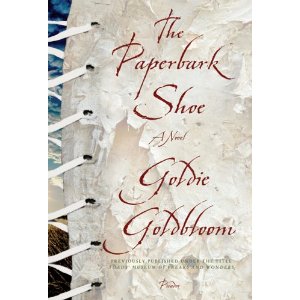
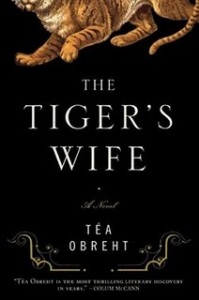
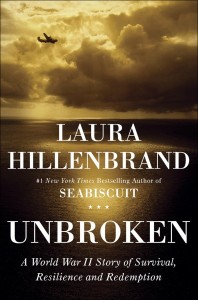




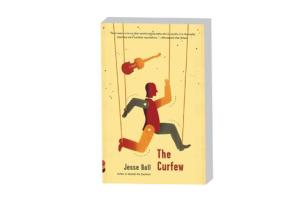

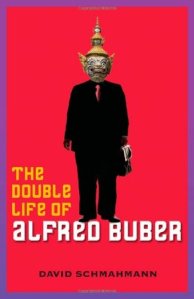

Great list, Lisa. I see lots here I’d like to read, and thank you SO MUCH for reminding me of I Married You For Happiness. It’s at the tippy top of my wishlist, and I suspect I’ll be breaking a Barnes and Noble gift card out to purchase it.
LikeLike
Andi – Yes! Get it, do! Love to know what you think.
LikeLike
Hi, Bluestalking–
Can I just say thank you for mentioning that you don’t remember everything you’ve read this year (or rather, what some of the books you read were about)? I’ve often wondered why I just don’t read fewer books, and spend more time over them. But I can’t do it. Must take them in large gulps, three or four simultaneously! There’s just so much out there that I don’t want to miss…
Amy
LikeLike
Amy – I sympathize! Exactly the same with me. Wish there were morehours in the day.
LikeLike